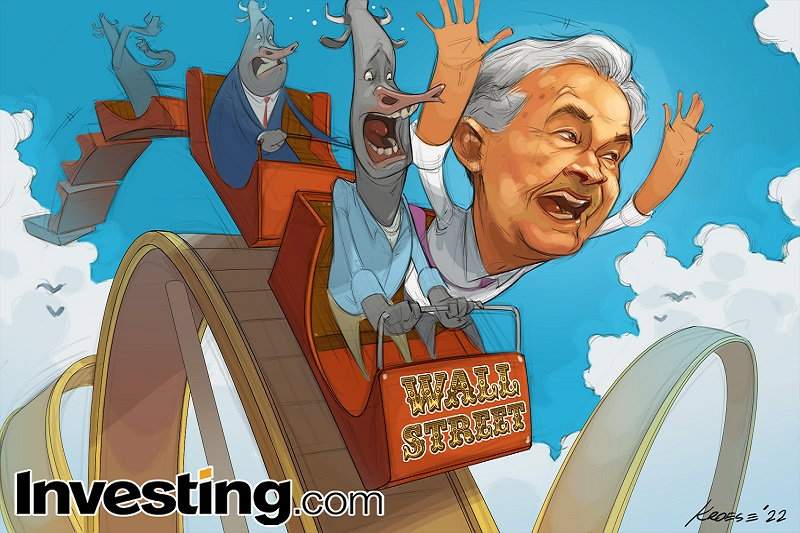Investing.com - The low interest rate phase in the 2010s and countless monetary stimulus programmes led to the formation of all kinds of bubbles - that is well known. However, no one wants to know that these bubbles will burst.
Why should they? After all, the central banks are propagating a soft landing and suggesting that they can cope with any situation, no matter how difficult. There is no talk of a banking or even a financial crisis; instead, the economy is reported to be robust and there is no reason to worry.
Of course, there are also voices that claim the opposite and warn of an impending collapse. But you don't like to listen to these doomsayers, especially not if you are betting on the next all-time high. For one's own salvation, it is advantageous to follow the official, politically correct accounts.
But when two Fed economists like Ander Perez-Orive and Yannick Timmer write a paper in which they talk about the biggest wave of bankruptcies since the tightening cycles of the 1970s, then at the latest one should listen very carefully to what is being said.
The study prepared by the two economists says that current monetary policy is expected to lead to a "significant slowdown in investment and employment". The data analysed show that "when the share of troubled firms in an economy is higher, tightening shocks have a greater impact on investment and employment".
At 37 per cent, the number of US companies on the verge of insolvency is the highest it has been in 50 years.
So this Fed analysis concludes that the current monetary policy measures alone are enough to cause the biggest recession since the 1970s.
This already dicey situation is exacerbated by the fact that the economy must prepare for new supply bottlenecks in the international trade in goods. This will, of course, be accompanied by price rises that will exacerbate inflation and force central banks to raise interest rates even further.
The reason is that the US government and its allies are convinced that they can very effectively slow down China's growth by imposing export bans on its latest chip technology. However, the fact that China is in the driver's seat, because these chips would not exist without the raw materials from China, does not seem to have been thought through thoroughly enough.
China's reaction was not long in coming and hits not only the Achilles heel of the USA, but of the entire Western world.
From 1 August, China will restrict the export of rare earths such as gallium and germanium. Licences are required to export these raw materials, which are issued by the Ministry of Commerce. Those who do not have a licence are not allowed to take these basic materials (NYSE:XLB), which are urgently needed in the world, out of the country.
China used the argumentation of the USA as a model for its justification and invoked that it was a matter of national security. This is true insofar as the rare earths are not only needed for electric vehicles and solar modules, but also for high-tech weapons systems.
The latter is primarily interesting from the point of view of the looming Taiwan conflict. Because with this new regulation, China determines who in the world can produce modern weapons systems at all.
The Raytheon (NYSE:RTN) CEO had only recently explained how dependent the US defence industry is on China. His company alone has thousands of Chinese suppliers that cannot be replaced. If anything, this conversion process would take years, as new sources of rare earths would have to be found, which sounds easier than it is.
China accounts for 61 percent of the rare earths traded worldwide and has the largest known deposits. It is followed by Vietnam, Brazil and Russia. In other words, three of the five BRICS countries that consider themselves geopolitically as G7 alternatives.
China's export control of raw materials will inevitably lead to the country of the dragon also having the value chain for the transformation to climate neutrality in its hands.
The production of solar panels, wind turbines and electric vehicles relies on rare earths. The artificial shortage of these goods on the global market is likely to drive up not only prices and thus inflation, but also demand for such products made in China.
The dream of independence from China, which emerged with the pandemic and the potential for geopolitical conflict, is thus likely to be finally over.
(Translated from German with DeepL)
